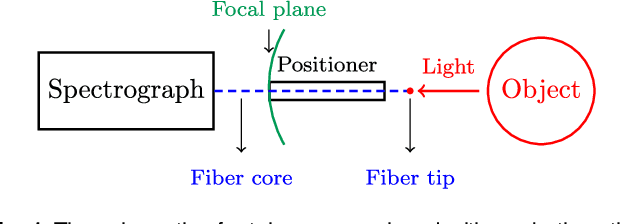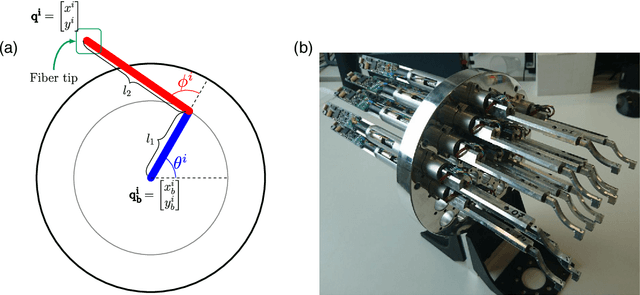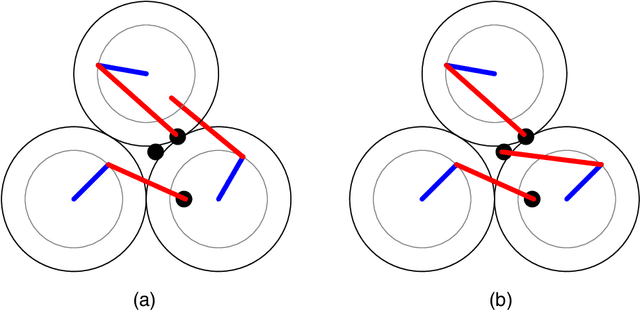Complete coordination of robotic fiber positioners for massive spectroscopic surveys
Paper and Code
May 21, 2020



Robotic fiber positioners play a vital role in the generation of massive spectroscopic surveys. The more complete a positioners set is coordinated, the more information its corresponding spectrograph receives during an observation. The complete coordination problem of positioners sets is studied in this paper. We first define the local and the global completeness problems and determine their relationship. We then propose a new artificial potential field according to which the convergences of a positioner and its neighboring positioners are cooperatively taken into account. We also discover the required condition for a complete coordination. We finally explain how the modifications of some of the parameters of a positioners set may resolve its incompleteness coordination scenarios. We verify our accomplishments using simulations.
 Add to Chrome
Add to Chrome Add to Firefox
Add to Firefox Add to Edge
Add to Edge